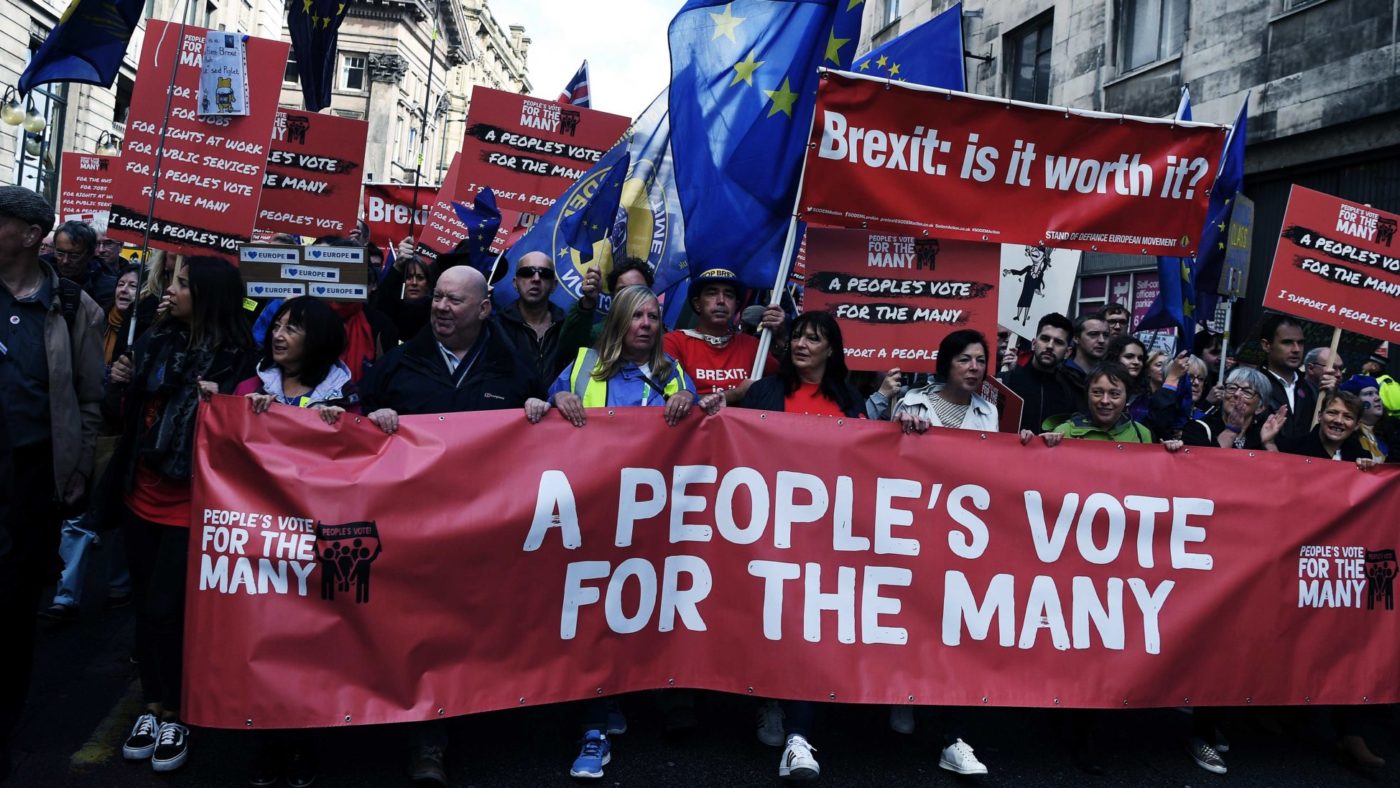A new year brings with it new topics. But it’s interesting to look back at 2018 and recall what we learnt from polling during what was, to put it mildly, an eventful year.
We didn’t learn much about changes in voting intention because there were hardly any. The Conservatives and Labour started the year right where they ended it – neck and neck.
On Brexit we learnt a bit more. Beneath the noise – and there was plenty of that – there was a bit of movement on the key questions of whether the 2016 vote was the right or wrong decision, how people would vote in a new referendum, or whether or not there should be one. But despite the volume of newsflow, very little has changed, and the next few months remain particularly uncertain given the unpopularity of Theresa May’s deal.
But polling is always about more than the voting intention “horse race” or the (currently rather similar) questions around Brexit. What about the “big picture” questions, such as what the British public thinks about capitalism?
There is cause for concern for capitalists. Sixty-one per cent of eligible voters think ordinary working people don’t get their fair share of the nation’s wealth, while only half believe in private enterprise. It turns out that there’s also an awful lot of indifference, with many on the fence (particularly among the younger age groups), although there is still plenty of hostility towards banks and bankers, as Number Cruncher/CapX polling ahead of the Lehman Brothers anniversary found.
One of the most interesting projects of the year was our Battle of Ideas series. We discovered among others things, that Brits are negative towards both capitalism and socialism, at least when the terms are used directly. And, to the surprise of many, millennials, while still being solidly pro-Labour, turned out to be the least hostile to big business of all the age groups.
Perhaps equally counterintuitively, the series found that attitudes to protectionism largely divide along Remain/Leave rather than left-right lines, although as you’d expect attitudes across the board were sensitive to how the question was put. On tax, eligible voters prefer a more progressive and a more local system.
The economy isn’t everything, though. Immigration has been one of the most contentious issues in recent times, and possibly decisive in the EU referendum. It may be noteworthy that hostility towards immigration has fallen, even though in absolute terms it remains unpopular, at least in high numbers.
I’ve felt for some time that the next big domestic policy issue could be housing. We now know that the 2017 youthquake was in fact a ‘rentquake’, and that housing is becoming a growing problem for the Tories, even if it isn’t talked about constantly.
There were also things we didn’t strictly “learn” in the sense of not having known them previously, but which were reinforced by fresh evidence. Not least that the US remains bitterly divided, with almost all Trump and Clinton voters sticking with that candidate’s party at the midterms, which saw the Democrats take control of the House of Representatives and the Republicans keep control of the Senate.
We were also reminded that Twitter isn’t Britain, and nor are people who attend protest marches. As the aforementioned polling shows, the public is often to the left of where policy is on economic issues. But on other issues, they tend to be more socially conservative.
That’s apparent on many “culture war” issues, and particularly so on the topic of political correctness, which is unpopular with a big majority whether you call it that or not. On the related matter of stopping traditions that some people object to, the message from the public is the same: “stop banning stuff”.
Unless, that is, you’re banning things that are bad for the environment, and especially that are bad for the animals. The combination of underperformance among young voters and graduates, and undoubtedly some genuine Tory environmentalism, seemed to produce a rather green sort of Conservatism in 2018.
If you’re sick of hearing conspiracy theories about government, business, polling, or whatever, you may have less company than you imagine. In 2018 we learnt that some conspiracy theories are in fact widely believed, with YouGov/Cambridge finding that 60 per cent of Brits believe at least one tall tale about how the country is run or the veracity of information.
Political stereotypes may be even more popular – caricatures such as “latte liberal” are often used without much to back them up. Of course, some stereotypes are true – Labour does now poll better among croissant eaters than porridge eaters. But a great many are nonsense, including “muesli munching Marxists” and “latte liberals” – both voted Conservative at the last election.
Stay tuned for more exclusive polling – 2019 could be an interesting year.


